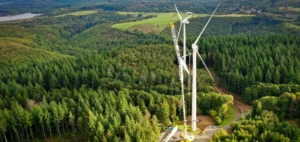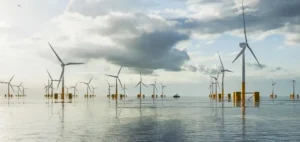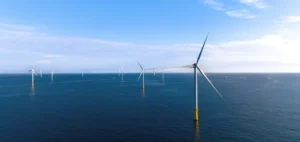The European Investment Bank (EIB) and Deutsche Bank announce collaboration to strengthen the European Union’s wind power industry.
The EIB is providing Deutsche Bank with a €500 million counter-guarantee, the first step in a €5 billion initiative launched last December by the EU’s development bank to increase wind power capacity.
This counter-guarantee enables Deutsche Bank to create a portfolio of guarantees worth up to €1 billion for investments in wind power generation and grid connections.
The European Commission is supporting this initiative as part of a wider effort to mobilize commercial banks to boost the deployment of renewable energies, in response to climate challenges and energy insecurity exacerbated by Russia’s invasion of Ukraine.
Industry Impact and Challenges
The €1 billion portfolio is expected to generate up to €8 billion in investments by companies or individuals.
The EU wind power industry, faced with uncertain demand, slow project approvals and supply chain bottlenecks, will benefit from this financial support.
Rising raw material prices and high inflation are also significant obstacles for wind power equipment manufacturers.
Chinese competitors are stepping up their presence in the EU with low-cost products, increasing the pressure on local manufacturers.
Despite these challenges, the ISB initiative could contribute to the construction of 32 gigawatts (GW) of new wind power capacity, playing a crucial role in achieving the EU’s target of 117 GW of new capacity by 2030.
Perspective and Analysis
The alliance between Deutsche Bank and the EIB represents a significant step forward for the European wind energy industry.
By facilitating access to financing, this initiative can boost the investments needed to meet the EU’s climate ambitions.
However, the success of this project will depend on the ability of market players to overcome current challenges and adapt to an increasingly complex global competitive environment.
This strategic collaboration could mark the beginning of a new era for wind energy in Europe, strengthening energy security and contributing to the European Union’s sustainability objectives.
The ability to navigate through economic challenges and market pressures will be crucial to the long-term success of this initiative.





















